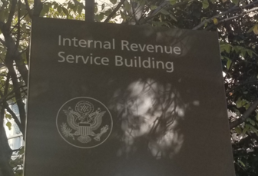
Lower Your Tax Bill More by Using a Qualified Charitable Distribution
This is the time of year when people often start taking personal inventory of how fortunate they are and start considering charitable contributions as a way to “give back” a little. For some, it’s an automatic budget item in their day to day lives, but for others it’s a new activity.
For many years the IRS has helped people give by allowing charitable contributions to be deducted on schedule A when they file their taxes. The tax deduction value of those gifts changed with the Trump tax code simplification, as many people no longer need to file a Schedule A due to the higher standard deduction.
Many people are still ingrained in their old charitable giving habits and aren’t aware that they can, and often should, do it differently to maximize their tax benefit. Not everyone can do a Qualified Charitable Distribution (QCD) from their pre-tax retirement accounts, but for those who are old enough that they have to take Required Minimum Distributions (RMDs) from those accounts, doing a QCD is a more direct and beneficial way to accomplish tax reduction. Unlike a charitable deduction, which provides no tax benefit if there is no Schedule A filed, a QCD directly lowers your Adjusted Gross Income (AGI) as well as satisfying up to $105,000 of this year’s RMD, whether a Schedule A is filed or not.
And the SECURE Act 2.0 legislation also allows donors to direct a one time, $53,000 QCD to a charitable remainder trust or charitable gift annuity!
Some donors may also find that QCDs provider greater tax savings than cash donations for which charitable tax deductions are claimed, since the IRS assets go directly to a charity and are not included in taxable income and therefore are not added to adjusted gross income (AGI) on the tax return. AGI is used in several key calculations, such as determining the taxable portion of Social Security benefits or what deductions and credits donors may qualify to receive.
Talk to your tax planner today if you think you could benefit from this special provision in the tax code.